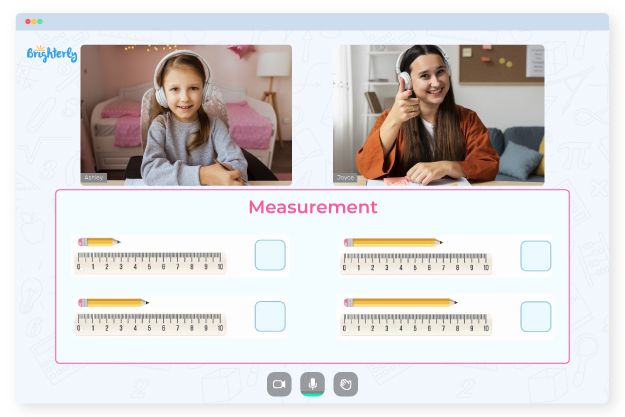Half an Hour in Math
Updated on January 8, 2024
Welcome to another fascinating exploration with Brighterly, your go-to platform for making math exciting and enjoyable for children! Today, we are diving deep into a topic that’s an integral part of our everyday life – the concept of ‘half an hour’.
With Brighterly, we aim to demystify complex math concepts and present them in an engaging and understandable format. Whether you’re a student wanting to bolster your math skills, a parent hoping to aid your child’s understanding, or a teacher seeking innovative teaching methods, this guide will serve as a handy tool.
Half Hour: Introduction
Let’s start from the basics. The concept of half an hour is quite simple – it represents half of a full hour, which is equivalent to 30 minutes. If you can count from 1 to 30, then you’ve already mastered the first step of understanding half an hour. This simple idea is used in our daily lives from catching the bus, to baking your favorite cookies, and even to timing your favorite television shows. This simple but significant idea forms the bedrock of our time system.
Half Hour/Half Past Definition
When we move on to reading time, “half past” is a term used to signify that 30 minutes or “half an hour” has passed after a particular hour. For example, when it’s “half past five”, it means that 30 minutes have passed since five o’clock. In other words, the time is 5:30. This usage is prevalent in everyday life and makes it easy for us to communicate time without getting too technical or detailed.
How to Read Half Past Hour on an Analog Clock
Analog clocks may seem like a mystery to the uninitiated, but they are quite simple once you understand the basics. Let’s simplify it: an analog clock has an hour hand and a minute hand. When the minute hand points to 6, it indicates that half an hour has passed. Meanwhile, the hour hand, which moves slower, points to the current hour. For instance, if the hour hand is on 3 and the minute hand on 6, it’s “half past three” or 3:30.
Understanding Half Past Hour
The understanding of half past hour lies at the heart of time management. It helps us to organize our day efficiently and ensure that we’re always in the right place at the right time. Time telling also enhances our mathematical skills, especially in young learners, by improving their number recognition and counting abilities. Furthermore, by breaking down the hour into halves, children learn the concept of fractions early on.
Half Hour and Full Hour
Understanding the relationship between a half hour and a full hour is another fundamental skill. Essentially, two half hours make a full hour. This connection lays the foundation for understanding fractions, division, and multiplication. This basic math concept can be extrapolated to multiple real-world situations, helping children to become adept at problem-solving and critical thinking.
Solved Examples on Half an Hour
Let’s take a practical example: if a TV show starts at half past four (4:30), and lasts for half an hour, it will end at five o’clock. Similarly, if a cooking recipe requires you to bake for half an hour starting at 2 o’clock, your dish will be ready at half past two (2:30). These real-life applications of half an hour not only improve mathematical understanding but also everyday functionality.
Practice Problems on Half an Hour
Want to test your understanding of half an hour? Try these practice problems. If you start studying at 6 o’clock and study for half an hour, what time will you finish studying? If a movie starts at half past seven (7:30) and lasts for two hours, what time will it end?
Conclusion
At Brighterly, we believe in fostering a strong foundation in math for children to help them excel in their future endeavors. Understanding the concept of ‘half an hour’ is not just about learning how to tell time, it’s about instilling essential life skills such as critical thinking, problem-solving, and time management. Moreover, it forms the bedrock of numerous mathematical concepts such as fractions, division, and multiplication, which are crucial for advanced learning.
As simple as it may seem, the knowledge of half an hour is woven into the very fabric of our daily routines and activities. Whether it’s waiting for half an hour for a pizza to bake, or timing your favorite 30-minute TV show, understanding this concept impacts everyday functionality in subtle yet profound ways.
Frequently Asked Questions on Half an Hour
What exactly is half an hour?
Half an hour simply means 30 minutes. In terms of fractions, it is half of a full hour, which consists of 60 minutes.
What does ‘half past’ mean?
‘Half past’ is a term used to express that 30 minutes, or half an hour, has passed after a particular hour. For example, ‘half past six’ means it is 30 minutes past six o’clock, so the time is 6:30.
How can I read ‘half past’ on an analog clock?
On an analog clock, when the minute hand (the longer one) points at 6, it indicates that half an hour has passed. The hour hand (the shorter one) shows the current hour.
How does understanding half an hour help in daily life?
The concept of half an hour is crucial in planning and scheduling our day-to-day activities. It also provides a basic understanding of fractions, thereby improving problem-solving and critical thinking skills.




